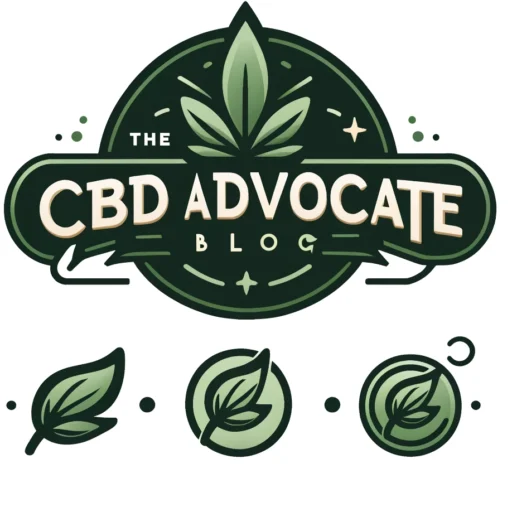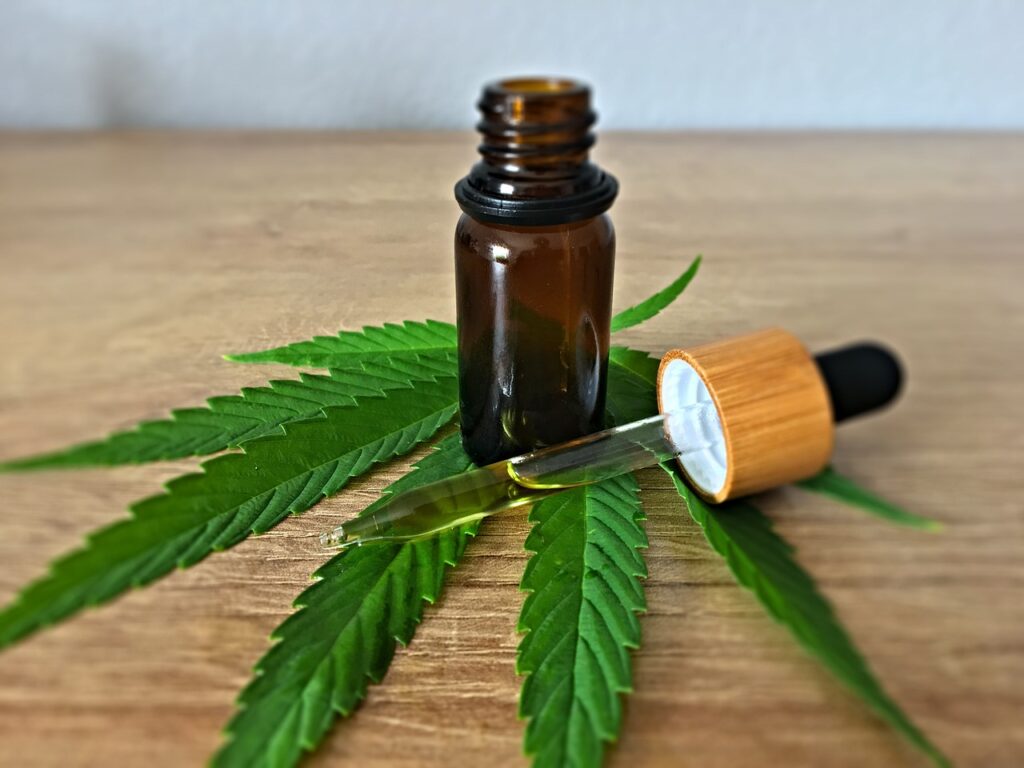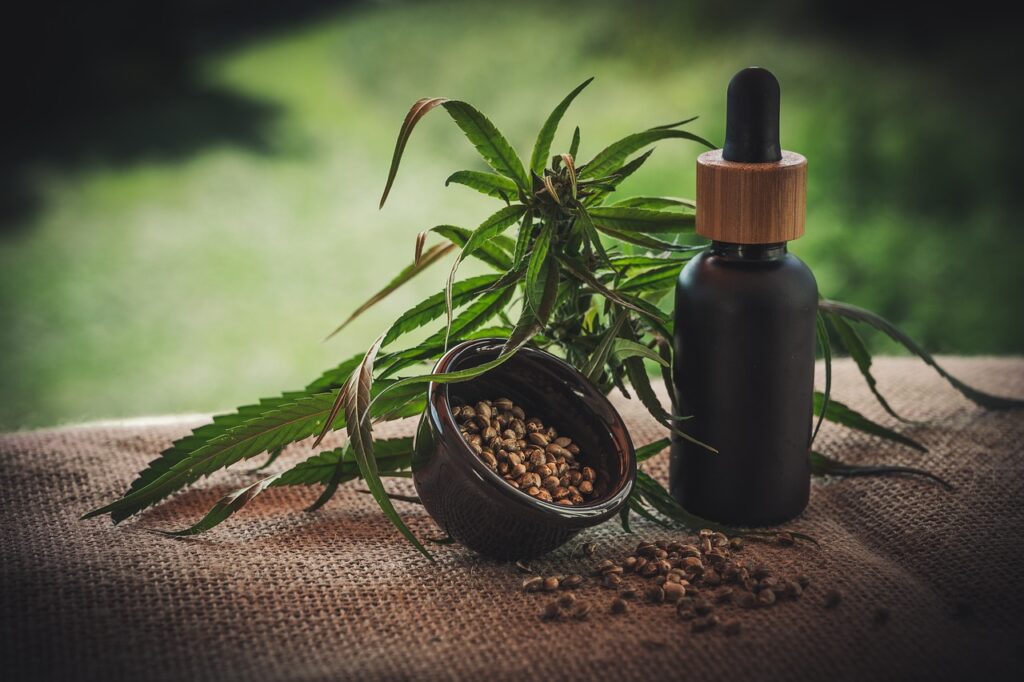
Why Choose The CBD Advocate?
Industry Insights
Stay ahead with our in-depth knowledge of the CBD and Hemp industry trends and regulations.
Community Support
Join a supportive community that shares your passion for the benefits of CBD and Hemp products.
Advocacy Initiatives
Participate in campaigns and events that promote the safe and legal use of CBD and Hemp products.

Our Latest News
This is How Old You Have To Be To Buy CBD in California
Are you interested in learning about CBD and its legal status in California? Do you have questions about the age restrictions for purchasing CBD in the state? This article will provide you with all the information you need.
From explaining what CBD is and its legal standing in California to detailing the minimum age requirements for buying CBD, we have all the details covered. We will also explore the process of purchasing CBD in California, ensuring that your transaction is both safe and legal.
Stay up-to-date on the evolving laws and regulations concerning CBD in the Golden State.
Understanding CBD and its Legality in California
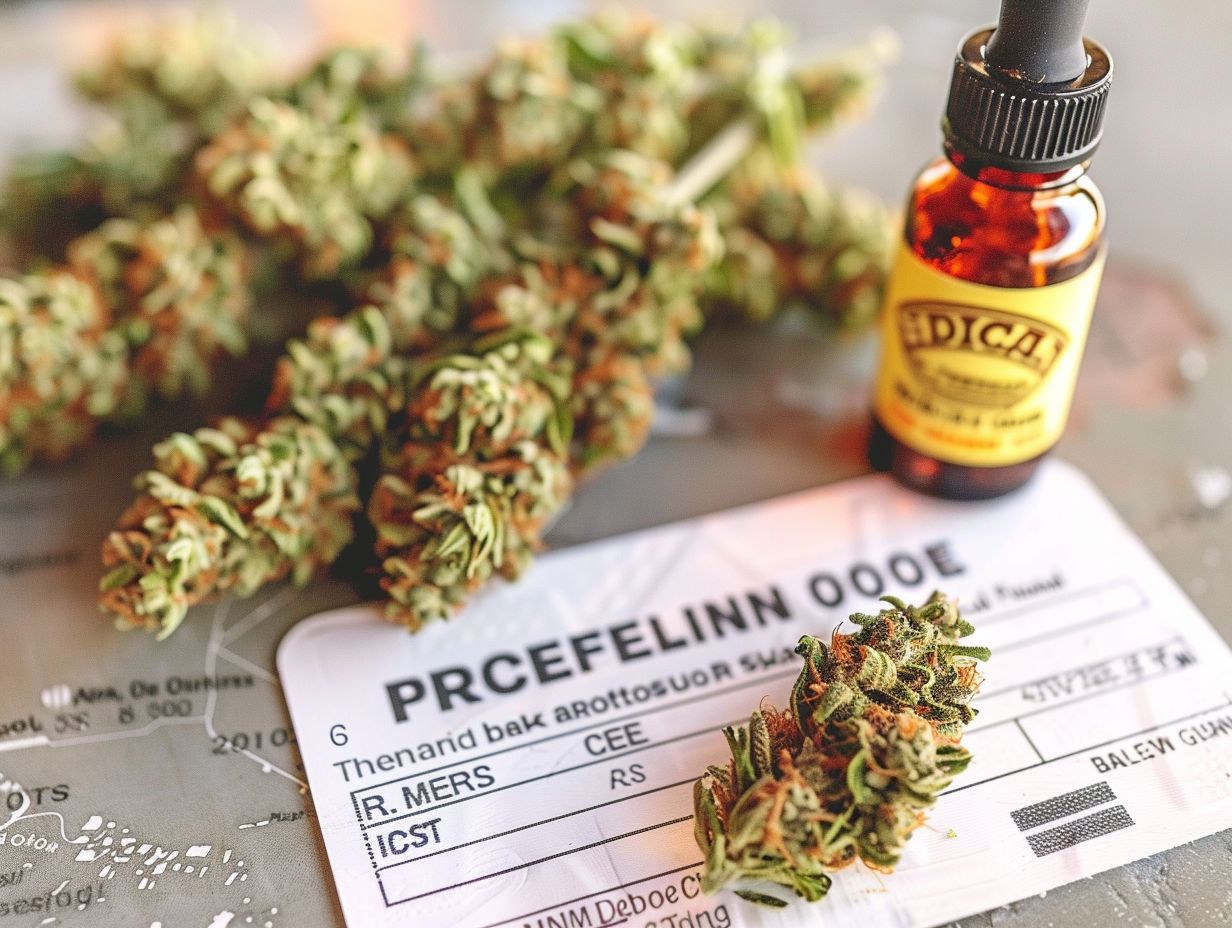
It is imperative for consumers in California to have a thorough understanding of CBD and its legal status within the state before purchasing CBD products. California has established specific laws and regulations that govern the sale and acquisition of CBD products, aiming to ensure that consumers are informed about the permissible standards set by the state.
CBD products that are derived from hemp and contain less than 0.3% THC are considered legal in California. It is essential for consumers to confirm the source and THC content of the CBD products they intend to purchase.
In California, CBD products must be accurately labeled with detailed information about ingredients and dosage. Additionally, the state prohibits the addition of CBD to food and beverages, as this area falls under the jurisdiction of the California Department of Public Health.
By keeping abreast of the legal framework surrounding CBD in California, consumers can confidently navigate the market and make informed choices by selecting products that adhere to the regulations set by the state.
What is CBD and is it Legal in California?
CBD, which stands for cannabidiol, is a compound extracted from the cannabis plant that is permitted in California. In the state of California, CBD products are permissible as long as they adhere to state regulations and contain less than 0.3% THC, the psychoactive element found in cannabis.
California’s state laws are stringent when it comes to CBD products being lawful for sale. These regulations are established to uphold consumer safety and ensure the quality of the products.
It is imperative for consumers to validate that the CBD products they are purchasing have been tested by an independent lab to verify that their THC content falls within the legal limit. By examining the product labels for accurate information, such as THC percentages and batch numbers, consumers can be certain that they are acquiring products that comply with California’s regulations.
Age Restrictions for Purchasing CBD in California
Understanding the age restrictions for purchasing CBD in California is essential for consumers who want to buy CBD products legally in the state. California has specific regulations regarding the minimum age requirements for individuals who wish to purchase CBD products.
In California, the law states that a person must be at least 21 years old to legally buy CBD products. This age limit corresponds with the legal age for consuming cannabis products in the state. It is crucial for both customers and retailers to adhere to these age restrictions to comply with the law.
CBD sellers typically implement age verification processes to ensure that buyers meet the minimum age requirement. By following these regulations, consumers can securely access CBD products, and businesses can operate within the legal framework established by the state.
Minimum Age Requirements for Buying CBD
The minimum age requirement for purchasing CBD in California specifies that individuals must be at least 21 years old to buy CBD products legally. This regulation is in line with the state’s guidelines regarding the lawful acquisition of cannabis and CBD products.
It is essential for consumers in California to be informed about and adhere to these age restrictions when buying CBD to ensure they are engaging in a legal transaction. Failing to follow these regulations can lead to severe repercussions, including legal consequences. By respecting the minimum age threshold of 21, consumers can contribute to fostering a secure and well-regulated CBD market while also protecting their own best interests. Having an understanding of and complying with the laws related to CBD product purchases is crucial for maintaining a lawful and conscientious CBD industry in the state.
Exceptions and Restrictions for Minors
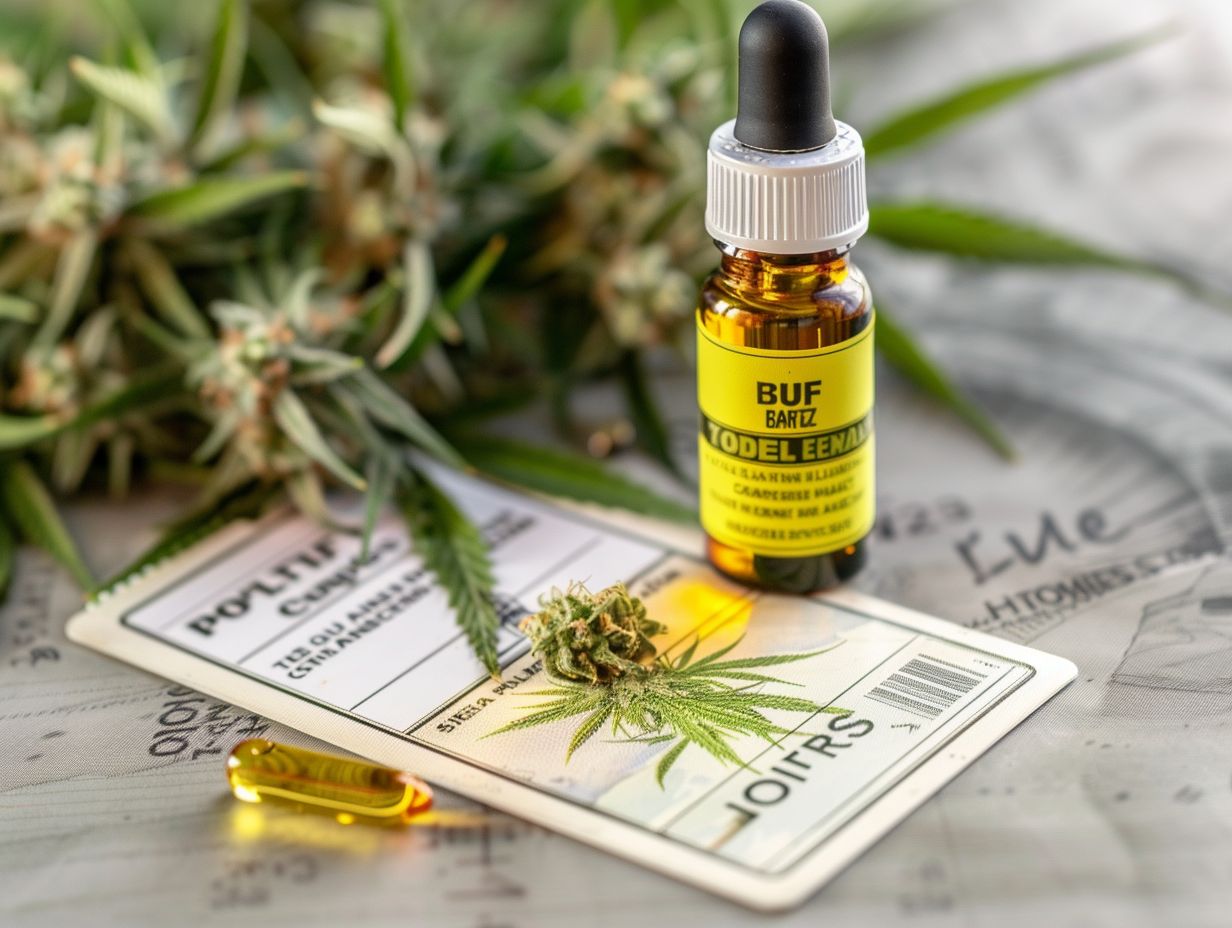
The legal age requirement for purchasing CBD in California is 21, with specific exceptions and restrictions for minors concerning CBD product procurement. Minors in California can access CBD under certain conditions as delineated by state regulations.
When minors in California wish to buy CBD products, they must meet specific criteria to comply with the law. Minors are only allowed to purchase CBD items if they possess a valid medical recommendation from a licensed healthcare provider. This provision for medical necessity enables minors to acquire CBD for therapeutic reasons under healthcare professional supervision.
In these instances, age verification processes play a vital role in preventing unauthorized purchases and ensuring the well-being of minors. State laws underline the importance of responsible CBD usage and stress the significance of adhering to legal regulations, particularly regarding minors.
How to Purchase CBD in California
Understanding how to purchase CBD in California requires navigating the legal requirements and restrictions established by the state. Consumers need to make sure they meet the age criteria and adhere to the guidelines in place to acquire CBD products within California.
In California, individuals must be at least 21 years old to purchase CBD products legally. It is crucial to make purchases from licensed dispensaries or authorized online retailers to ensure that the products align with state regulations. When buying CBD, consumers should carefully examine product labels to verify the THC content, as California mandates that CBD products contain less than 0.3% THC. It is advisable to conduct research on the brand’s reputation and read reviews to make well-informed decisions.
By following these recommendations, consumers can responsibly navigate the process of purchasing CBD in California.
Available Options for Buying CBD
Consumers in California have a range of options for purchasing CBD products, which include online retailers, dispensaries, and specialty stores. It is crucial to understand the legal framework surrounding CBD acquisition to ensure a safe and valid purchase.
Online retailers offer convenience and a diverse array of CBD products, allowing consumers to explore and buy from the comfort of their homes. Dispensaries provide a more personalized experience, with well-informed staff available to offer guidance on products and dosages. Specialty stores cater to individuals looking for unique or artisanal CBD items, often featuring locally sourced products.
By acquainting themselves with the regulations governing CBD in California, individuals can make informed decisions when choosing and purchasing CBD products in compliance with state laws.
Ensuring Safe and Legal Purchase of CBD
Ensuring the legal and secure purchase of CBD in California requires adherence to the state’s laws and regulations governing the procurement of CBD products. Consumers must familiarize themselves with the permissible guidelines and the legal age requirements for buying CBD within the state.
A critical factor to take into account when purchasing CBD in California is verifying the source and quality of the product. Seek out reputable dispensaries or online retailers that offer lab results and detailed information regarding the CBD content. It is essential to confirm that the CBD product contains no more than 0.3% THC to align with state regulations. Educating oneself about the various types of CBD products available, such as isolates, full-spectrum, or broad-spectrum, can assist in making an informed decision tailored to individual preferences and needs.
Tips for Buying CBD in California
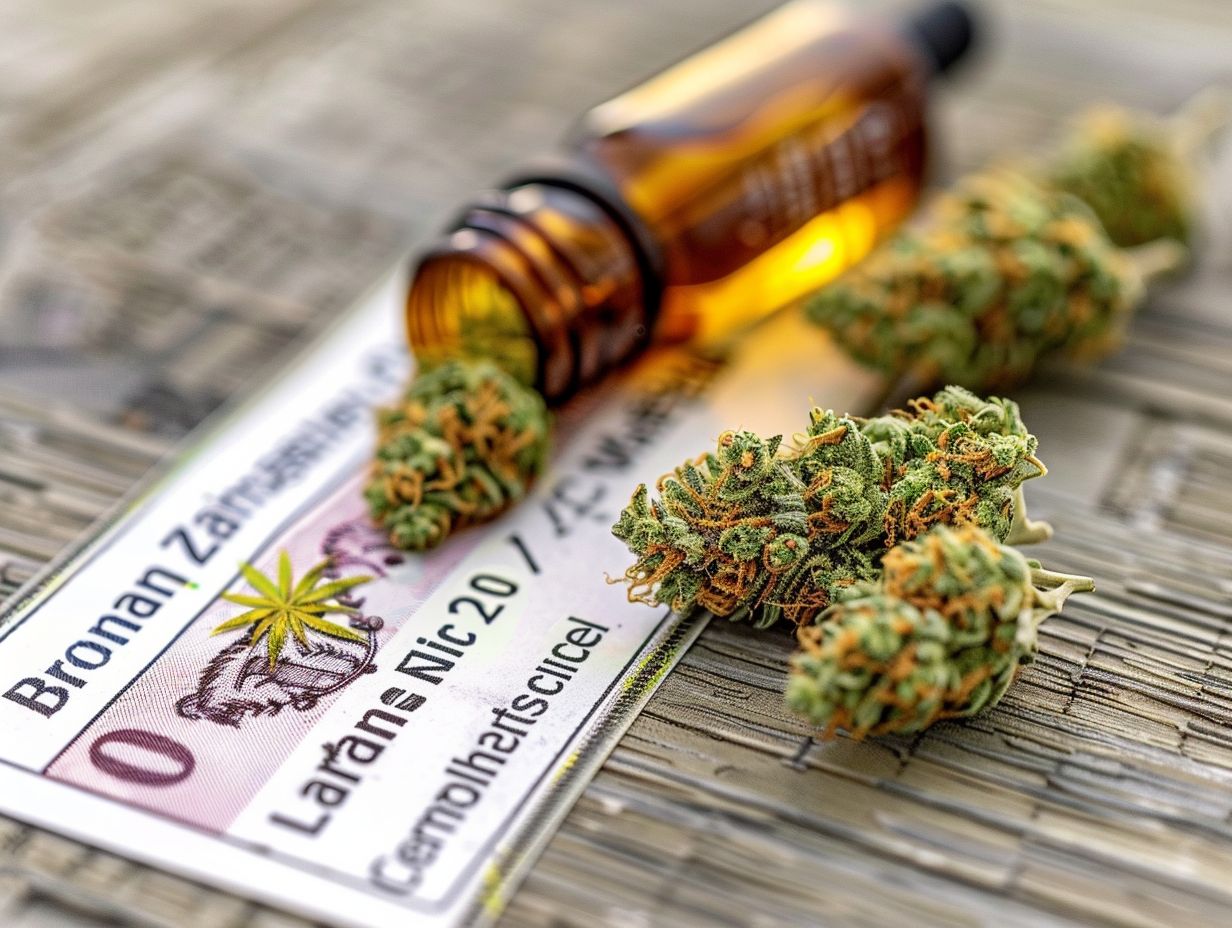
When purchasing CBD in California, it is essential to verify the legitimacy of the seller, review product certifications, and ensure adherence to state regulations. Consumers should confirm the age requirements allowed and only make purchases from reputable sources.
Before completing a purchase, consumers ought to conduct thorough research on the seller’s background, reputation, and customer reviews to ensure a trustworthy transaction. It is recommended to choose products that have undergone third-party testing and acquired certifications for quality and safety. To ensure compliance with California’s regulations, buyers should look for products with clear labeling, accurate THC content levels, and precise dosage information.
By following these steps, consumers can make well-informed choices and confidently purchase CBD products in California.
Keeping Up with Changing Laws and Regulations
It is crucial for consumers to stay informed about the evolving laws and regulations related to CBD in California. The legal framework surrounding CBD products is subject to change, and keeping abreast of state regulations is vital to ensure compliance and to make well-informed purchasing decisions.
Having knowledge of the most recent updates in CBD legislation can assist consumers in navigating the sometimes intricate landscape of CBD products in California. This awareness give the power tos individuals to make informed choices when selecting and using CBD items, safeguarding their legal standing and ensuring access to safe and high-quality products. By remaining vigilant and informed, consumers can protect themselves from potential legal issues and confidently explore the diverse range of CBD options available in the California market.
Frequently Asked Questions
What is the legal age to purchase CBD in California?
The legal age to purchase CBD in California is 21 years old. Anyone under the age of 21 is not permitted to purchase CBD products.
Can minors purchase CBD with a medical prescription in California?
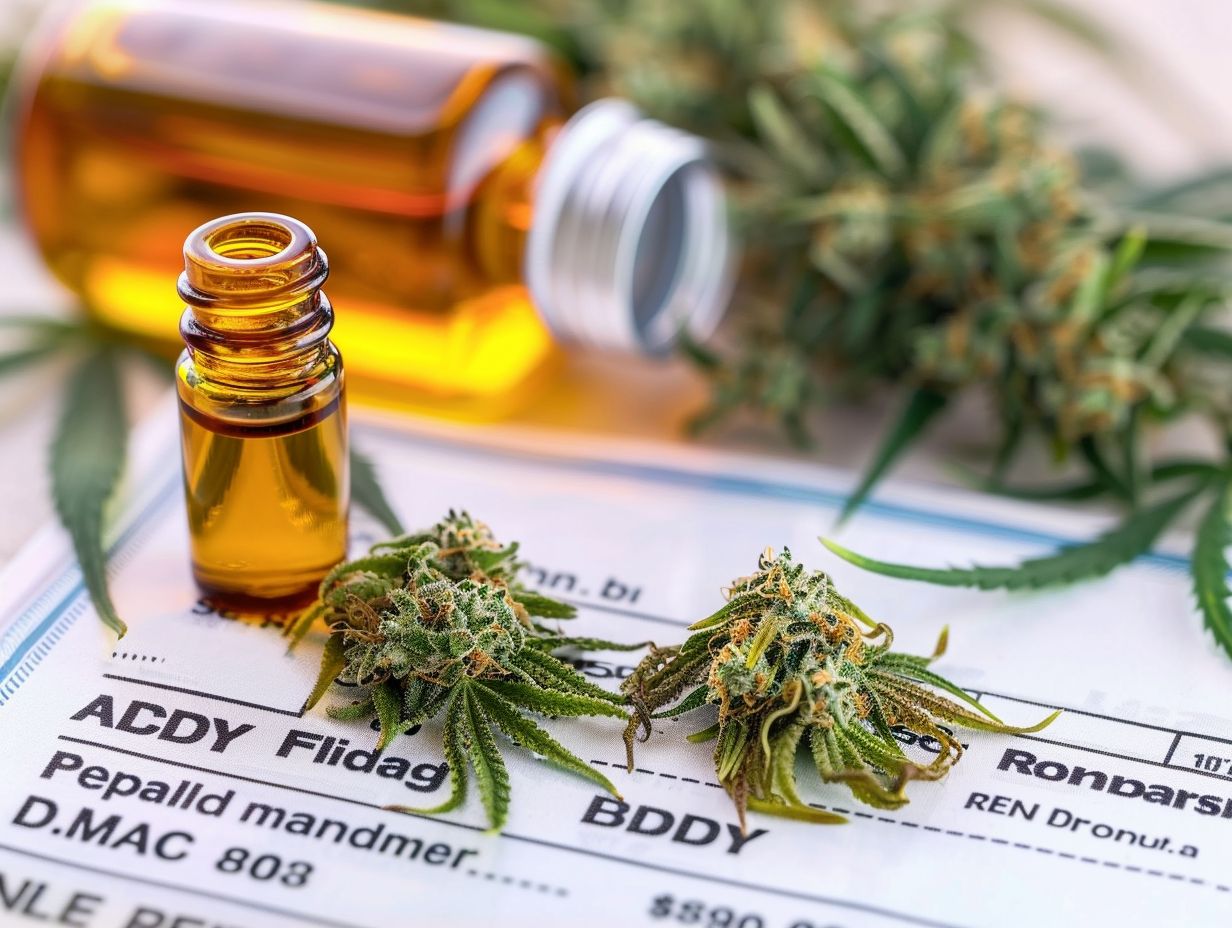
Yes, minors can purchase CBD products with a medical prescription in California. However, they must have a valid prescription from a licensed physician.
Is it legal for anyone under 21 to possess CBD in California?
No, it is not legal for anyone under 21 to possess CBD in California. This includes both recreational and medicinal CBD products.
Are there any restrictions on the types of CBD products minors can purchase in California?
Yes, minors are only permitted to purchase CBD products that do not contain THC. This means they cannot purchase any CBD products that have psychoactive effects.
Can parents or legal guardians purchase CBD for minors in California?
Yes, parents or legal guardians can purchase CBD for minors in California. However, they must ensure that the product is specifically formulated for minors and does not contain THC.
What are the consequences for selling CBD to minors in California?
Selling CBD products to minors in California is considered a misdemeanor and can result in fines and/or imprisonment. It is important for retailers to verify the age of customers before selling CBD products.
Mythbusting CBD: Separating Fact from Fiction in Popular Claims
Curious about CBD and its alleged miracle cures?
In this article, we delve into the popular claims surrounding CBD, from cancer cures to its legality.
But what does the research actually say about this trendy wellness product? We explore its potential benefits, risks, and side effects, shedding light on what you need to know before giving CBD a try.
Let’s separate fact from fiction and uncover the truth behind the hype surrounding CBD.
What Is CBD?
CBD, short for cannabidiol, is a naturally occurring compound found in the cannabis plant. It is known for its potential health and wellness benefits, often used in natural remedies for various conditions.
Originally, CBD was discovered in 1940 and has since gained significant interest for its non-intoxicating properties. The extraction process of CBD involves methods such as CO2 extraction, which allows for the preservation of the compound’s natural properties. This natural compound interacts with the body’s endocannabinoid system, potentially aiding in stress relief, promoting relaxation, and supporting overall well-being. The therapeutic potential of CBD extends to its anti-inflammatory and analgesic properties, which may help with managing pain and inflammation in various health conditions.
What Are the Popular Claims About CBD?
Popular claims about CBD range from it being a cure-all to misinformation about its legal status. Separating fact from fiction regarding CBD is essential in understanding its true benefits and limitations.
- One common myth surrounding CBD is that it can get you high, similar to THC, the psychoactive component of cannabis. CBD is non-psychoactive, meaning it does not produce a ‘high’ feeling.
- Another misconception is that all CBD products are the same; in reality, the quality and concentration of CBD can vary significantly between products. Understanding these distinctions is crucial for consumers to make informed decisions and experience the potential benefits of CBD without falling prey to marketing hype or false promises.
CBD Can Cure Cancer
One of the prevalent myths about CBD is its alleged ability to cure cancer, a claim that lacks substantial scientific evidence. While research shows promising effects of CBD in certain areas, its role in curing cancer remains unsubstantiated.
Studies have revealed that CBD may have anticancer properties due to its ability to induce apoptosis in cancer cells and inhibit their growth. It is essential to note that most of these studies have been conducted in preclinical models or small-scale clinical trials, highlighting the need for further extensive research. Researchers emphasize that while CBD shows potential for cancer treatment, it should not be hailed as a cure for the disease, as the mechanisms behind its interaction with cancer cells are complex and require more in-depth exploration.
CBD Is Completely Safe and Has No Side Effects
Another common misconception is that CBD is entirely safe and devoid of any side effects. While CBD is generally well-tolerated, it is not without potential risks and side effects that need to be considered.
Some individuals may experience side effects such as fatigue, diarrhea, changes in appetite, and weight fluctuations when using CBD. CBD can interact with certain medications, potentially leading to adverse effects. It’s important to consult with a healthcare professional before incorporating CBD into your wellness routine, especially if you have underlying health conditions or are taking other medications. By being informed about the possible risks and side effects associated with CBD, users can make more educated decisions about its usage and avoid falling for the myth of absolute safety.
CBD Is a Miracle Cure for All Ailments
The perception of CBD as a miracle cure for all ailments is a misconception that oversimplifies its potential benefits. While CBD may offer therapeutic properties, it is not a one-size-fits-all solution for every health issue.
Adopting CBD as a holistic remedy involves understanding its role in the broader landscape of alternative medicine and wellness practices. Many individuals have found relief from certain conditions through the incorporation of CBD into their wellness routines. By recognizing CBD’s potential to support overall well-being, individuals can explore its benefits as part of a comprehensive approach to health. Embracing CBD within a balanced lifestyle can contribute to a sense of harmony and vitality, aligning with the principles of holistic healing and self-care in the modern wellness industry.
CBD Is Legal Everywhere
The assumption that CBD is legal everywhere is a common misconception, as its legal status varies between jurisdictions and is influenced by factors such as its source, THC content, and intended use.
The legal complexities surrounding CBD stem from the distinctions between medical and recreational CBD products. In the realm of medical CBD, its legality often hinges on prescribed usage and medical necessity. On the other hand, recreational CBD products face stricter regulations due to their non-medical or non-therapeutic application. Factors like governing laws, enforcement priorities, and industry standards play a crucial role in determining the legal status of CBD products within a specific jurisdiction.
What Does the Research Say About CBD?

Scientific research on CBD has shown promising results in various areas of health and wellness, providing evidence for its potential therapeutic effects. Studies continue to explore the diverse applications of CBD in medical science.
Research has delved deeply into the interaction of CBD with the endocannabinoid system, elucidating how it influences bodily functions like pain perception, immune response, and mood regulation. Clinical trials are underway to investigate the role of CBD in managing conditions such as chronic pain, anxiety disorders, and epilepsy. These studies aim to not only understand the mechanisms through which CBD exerts its effects but also to develop targeted treatment strategies based on solid scientific evidence.
CBD Has Shown Promising Results in Treating Epilepsy
Clinical studies have demonstrated the potential of CBD in treating epilepsy, particularly in reducing the frequency and severity of seizures. The medical community continues to explore CBD as a valuable option for epilepsy management.
Findings from recent research have highlighted the specific mechanisms through which CBD exerts its anti-seizure effects, pointing towards its potential as a promising adjunct therapy for epilepsy patients. Studies have shown that CBD may interact with the endocannabinoid system to modulate neuronal activity and enhance seizure control. The therapeutic use of CBD in epilepsy is gaining momentum, with ongoing investigations focusing on optimal dosing regimens and long-term efficacy. These breakthroughs signify a significant step forward in leveraging CBD’s medicinal properties for managing epilepsy.
CBD May Have Anti-Inflammatory and Pain-Relieving Properties
Preliminary research suggests that CBD exhibits anti-inflammatory and pain-relieving properties, which may offer potential benefits for individuals dealing with chronic pain and inflammatory conditions.
Further studies have indicated that CBD’s interaction with the endocannabinoid system can help regulate inflammation and alleviate pain. This natural compound has shown promise in reducing oxidative stress, promoting relaxation, and enhancing overall well-being. People are increasingly turning to CBD products as a holistic approach to managing various ailments, including arthritis, muscle soreness, and anxiety. By targeting inflammation and pain pathways, CBD may aid in restoring balance to the body and supporting a more active and comfortable lifestyle.
CBD May Help with Anxiety and Depression
Studies suggest that CBD holds promise in alleviating symptoms of anxiety and depression, offering a potential natural remedy for individuals struggling with these mental health conditions. The effects of CBD on mood regulation continue to be investigated.
Recent research has shown that CBD may interact with serotonin receptors in the brain, playing a role in managing emotions and promoting feelings of well-being. CBD has been found to reduce the levels of cortisol, a stress hormone, potentially leading to a calmer state of mind. By modulating the endocannabinoid system, CBD could help restore balance to neurotransmitter function, which is crucial in addressing anxiety and depression.
CBD May Have Potential in Treating Substance Abuse
Emerging studies indicate that CBD shows promise in the treatment of substance abuse disorders, with potential benefits in reducing cravings and withdrawal symptoms. The therapeutic role of CBD in substance abuse management is an area of active investigation.
Research has suggested that CBD interacts with the endocannabinoid system, playing a key role in regulating various processes linked to addiction and withdrawal. By targeting specific receptors in the brain, CBD may help restore balance and alleviate the symptoms associated with substance abuse. Studies have shown that CBD’s anti-inflammatory and neuroprotective properties could have protective effects on the brain, potentially supporting recovery from substance abuse. The potential of CBD to address both the physical and psychological aspects of addiction makes it a promising avenue for future treatment approaches.
What Are the Potential Risks and Side Effects of CBD?
While CBD is generally considered safe, there are potential risks and side effects associated with its use, especially when consumed in high doses or interacted with certain medications. Understanding the safety profile and recommended dosage is crucial for responsible CBD consumption.
Excessive consumption of CBD may lead to side effects such as fatigue, changes in appetite, or diarrhea. It is important to start with a low dosage and gradually increase it, paying close attention to how your body responds. Consulting with a healthcare provider before incorporating CBD into your routine is advisable, especially if you are taking other medications.
Quality of the CBD product can also impact its effects, so opt for reputable brands that provide clear information on dosing and potential interactions.
CBD May Interact with Certain Medications
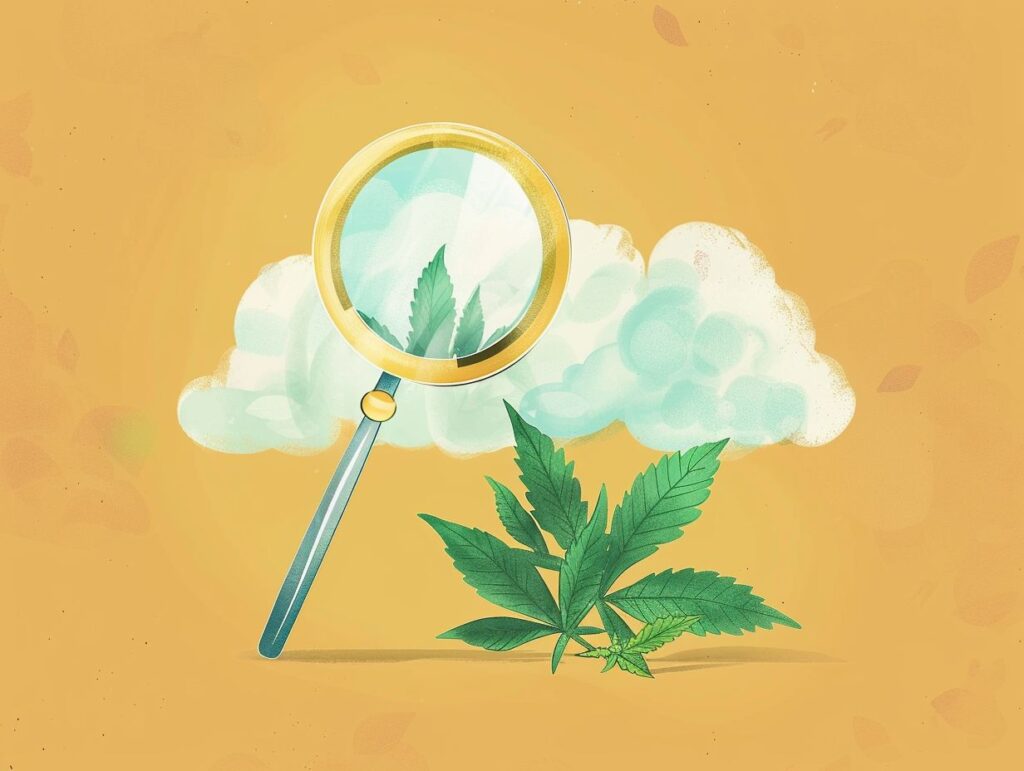
One notable risk of CBD usage is its potential to interact with certain medications, affecting their efficacy or causing adverse reactions. Individuals using medications should consult healthcare professionals before incorporating CBD into their regimen.
This precaution is crucial due to the way CBD can influence the metabolism of various drugs in the body. These interactions may lead to unexpected side effects or reduce the effectiveness of vital medications. Without proper guidance, there is a risk of experiencing heightened or decreased drug concentrations in the bloodstream, potentially posing health hazards. Therefore, seeking advice from a healthcare provider can help individuals navigate the complex landscape of medication risks and safety considerations when integrating CBD products into their health routine.
CBD May Cause Drowsiness or Fatigue
Some individuals may experience drowsiness or fatigue as potential side effects of CBD consumption, particularly when taken in higher doses. Understanding these effects and their impact on daily activities is essential for informed CBD use.
It is crucial for users to be aware of the risks associated with CBD-induced fatigue to avoid potentially hazardous situations such as operating heavy machinery or driving. Drowsiness and fatigue can impair cognitive function, alertness, and reaction times, posing a safety concern. In some cases, excessive fatigue may also lead to decreased productivity and quality of life.
Monitoring dosage, starting with lower levels, and gradually increasing it while paying attention to one’s body’s response can help mitigate these side effects and ensure a positive CBD experience.
CBD May Cause Nausea or Diarrhea
In some cases, CBD consumption can lead to side effects such as nausea or diarrhea, affecting the gastrointestinal system. Monitoring these reactions and adjusting CBD dosages may help mitigate these unwanted effects.
Nausea and diarrhea are common adverse reactions observed in individuals using CBD products, especially in higher doses or with poor-quality products. These gastrointestinal issues can disrupt one’s daily routine and impact overall well-being. It is crucial to recognize these symptoms early on to prevent further discomfort.
While CBD is generally considered safe, its impact on digestive health varies among individuals. Factors like pre-existing conditions, medication interactions, and the source of CBD can influence the severity of gastrointestinal side effects. Consulting a healthcare professional for guidance on managing these reactions is vital for a smoother CBD experience.
What Should You Know Before Trying CBD?
Before incorporating CBD into your wellness routine, it is crucial to understand that CBD products are not regulated by the FDA, necessitating caution in product selection and dosage management. Considering potential interactions with other supplements or herbs is essential for safe CBD usage.
Given the lack of FDA oversight, consumers must prioritize making informed decisions when choosing CBD products. Researching reputable brands, checking for third-party lab testing, and consulting with healthcare professionals can help navigate the unregulated market.
Understanding the possible effects of combining CBD with medications or other supplements is also crucial for maintaining safety. Following recommended usage guidelines and starting with low doses can further reduce risks and promote responsible CBD consumption.
CBD Is Not Regulated by the FDA
One crucial aspect to note is that CBD products are not regulated by the FDA, leading to variations in quality and safety standards across the industry. Understanding the implications of this lack of regulation is essential for informed CBD consumption.
This absence of FDA oversight means that the market is flooded with products of varying quality and reliability. Without clear regulatory standards in place, consumers face risks in terms of product consistency, accurate labeling, and potential exposure to harmful substances. The lack of regulation raises concerns about the legality of certain CBD products, as the varying state laws often conflict with federal guidelines, creating a murky legal landscape for both consumers and producers.
CBD May Interact with Other Supplements or Herbs
Considering potential interactions between CBD and other supplements or herbs is crucial to avoid adverse effects or reduced efficacy of either substance. Prior consultation with healthcare providers can help ensure the safe integration of CBD with existing wellness regimens.
When combining CBD with supplements or herbs, it is essential to understand how these substances may interact with each other. Certain supplements or herbs may amplify or diminish the effects of CBD, leading to unexpected outcomes. Safety precautions such as starting with low doses, monitoring for any adverse reactions, and being mindful of potential contraindications can significantly reduce the risks associated with concurrent use. By staying informed and seeking professional guidance, individuals can navigate the complexities of substance interactions and safeguard their well-being.
CBD May Not Work for Everyone

It’s essential to recognize that CBD may not produce the same effects for everyone, as individual responses to the compound can vary widely. Managing expectations and exploring alternative options when CBD is ineffective is key to personalized wellness strategies.
Factors such as metabolism, genetics, and overall health can influence how CBD interacts with one’s body. Some individuals may find relief from chronic pain or anxiety with CBD, while others may not experience significant benefits. By acknowledging this variability, individuals can work with healthcare professionals to tailor CBD usage according to their specific needs. This personalized approach ensures that each person can optimize the potential benefits of CBD for their unique physiology and wellness goals.
Frequently Asked Questions
Is CBD psychoactive and will it make me high?
No, CBD is not psychoactive and will not make you high. It is derived from the hemp plant and does not contain the psychoactive compound THC, which is responsible for the “high” associated with marijuana.
Can CBD cure diseases and illnesses?
No, CBD is not a miracle cure and should not be used as a replacement for traditional medical treatments. While it may have some therapeutic effects, it is not a cure for any specific disease or illness.
Is it safe to use CBD while pregnant or breastfeeding?
There is not enough research to determine the safety of using CBD while pregnant or breastfeeding. It is always best to consult with a healthcare professional before using any new supplement or medication during pregnancy or while breastfeeding.
Will CBD show up on a drug test?
No, CBD will not show up on a drug test. Most drug tests are looking for THC, the psychoactive compound found in marijuana. However, some CBD products may contain trace amounts of THC, so it is important to purchase from reputable sources and check the product’s labelling.
Is it true that there are no side effects of using CBD?
While CBD is generally well-tolerated by most people, it can still have potential side effects such as dry mouth, drowsiness, and changes in appetite. It is important to start with a low dosage and gradually increase as needed to minimize any potential side effects.
Can I overdose on CBD?
No, it is not possible to overdose on CBD alone. However, taking too much CBD may result in mild side effects such as drowsiness or upset stomach. It is important to follow recommended dosages and consult with a healthcare professional before increasing your dosage.
For Newbies: How To Choose The Right CBD Oil
Curious about CBD oil but not sure where to start? In this comprehensive buyer’s guide, we’ll walk you through everything you need to know about choosing the right CBD oil for your needs.
From determining your requirements to considering extraction methods, potency, and more, we’ve got you covered. We’ll also highlight common mistakes to avoid when selecting CBD oil to ensure you make the best decision for your health and wellness.
Let’s dive in and make the process of choosing CBD oil a breeze.
What is CBD Oil?
CBD oil is a popular product derived from the cannabis plant, specifically from the cannabinoid cannabidiol (CBD). It is extracted using various methods such as full-spectrum extraction, isolates, or organic extraction processes, retaining essential terpenes.
- Full-spectrum oils are a type of CBD oil that contain a wide range of cannabinoids, including THC (tetrahydrocannabinol), which is known for its psychoactive properties.
- On the other hand, isolates are pure CBD products, free from other compounds found in the plant.
Organic CBD oils are derived from organically grown hemp plants, ensuring a clean and natural product. Terpenes, aromatic compounds found in plants, are crucial in CBD oil as they contribute to the overall effects and flavors of the oil.
The market offers various types of CBD oils to cater to different preferences and needs.
What Are the Benefits of CBD Oil?
CBD oil offers a range of potential benefits for various health conditions. It is known to provide relief from pain, reduce anxiety, alleviate inflammation, and even aid in managing epilepsy.
Research has shown that CBD interacts with the endocannabinoid system in the body, which plays a crucial role in regulating pain sensation and mood. By targeting these receptors, CBD can help alleviate chronic pain conditions such as arthritis or migraines. In terms of anxiety disorders, studies have indicated that CBD can reduce anxiety levels and improve symptoms of generalized anxiety disorder and social anxiety. CBD’s anti-inflammatory properties make it a promising natural alternative for conditions like rheumatoid arthritis or inflammatory bowel disease.
How to Choose the Right CBD Oil?
Selecting the right CBD oil involves considering various factors such as lab testing, customer reviews, and the reputation of the brand. A comprehensive buyer’s guide can help navigate through dosage recommendations and product selection.
- When it comes to lab testing, it’s crucial to look for CBD oils that have undergone third-party testing for purity and potency. These lab reports, often available on the brand’s website or upon request, provide transparency on what exactly is in the product.
- Similarly, checking customer reviews can offer insights into the effectiveness of the oil for different health concerns. Researching the reputation of different brands can help you choose a trustworthy source.
- Remember to start with a lower dosage and gradually increase to find what works best for you, and opt for reputable brands known for their quality products and positive customer feedback.
Determine Your Needs
Before selecting a CBD oil, it is crucial to assess your specific needs based on health conditions, desired potency levels, and the intended use of the product.
Consider, for instance, someone dealing with chronic pain may benefit from a higher potency CBD oil to manage their symptoms effectively, whereas an individual seeking general wellness support might opt for a lower potency option.
Those using CBD for anxiety or stress relief may find that a moderate potency works best for them. It is essential to tailor your CBD oil choice to your unique requirements to optimize its benefits.
Check the Source and Quality
Evaluating the source and quality of CBD oil is essential to ensure that the product is derived from organic sources and undergoes a high-quality extraction process.
- When CBD oil is sourced from organic sources, it means that the plants are grown without pesticides or synthetic fertilizers, ensuring a cleaner final product.
- Quality extraction processes, such as CO2 extraction, preserve the integrity of the cannabinoids and terpenes, resulting in a more potent and effective oil.
- Transparency in labeling informs consumers about the exact ingredients in the product, while transparent production methods provide insight into how the oil was manufactured.
- This transparency builds trust between consumers and CBD companies, ensuring that the product is safe and reliable.
Consider the Extraction Method
Different extraction methods such as full-spectrum, isolates, or terpene-rich processes can impact the composition and efficacy of CBD oil.
Each extraction method plays a crucial role in determining the final product’s characteristics. Full-spectrum extracts contain a wide range of beneficial compounds, including cannabinoids, terpenes, and flavonoids, offering the entourage effect where these components work synergistically for enhanced therapeutic effects.
Isolates, on the other hand, are pure CBD extracts, devoid of other cannabinoids and plant compounds, making them ideal for individuals seeking precise doses without any trace of THC.
Terpene-rich oils, infused with aromatic compounds found in the hemp plant, provide not only therapeutic benefits but also offer distinctive flavors and aromas.
Look for Third-Party Testing
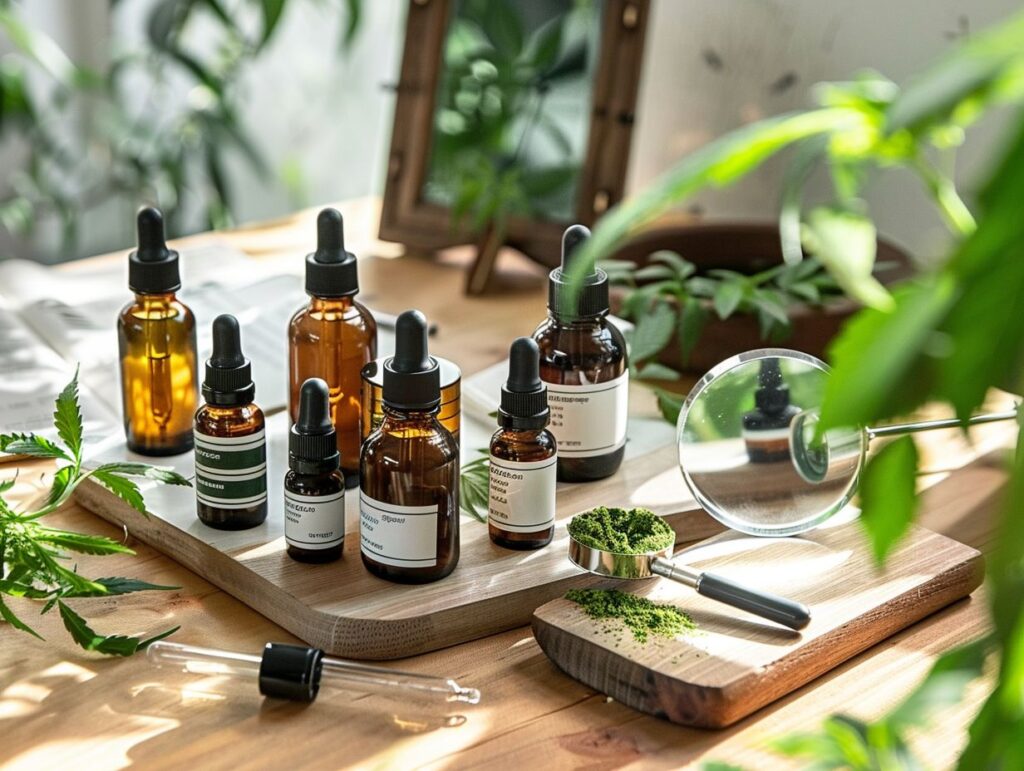
Ensuring CBD oil undergoes third-party testing by reputable labs is crucial to verify its quality, potency, and safety for consumption.
Third-party testing plays a vital role in the CBD industry as it provides an unbiased assessment of the product’s contents. Lab reports from these tests offer consumers transparency regarding the cannabinoid profile, potential contaminants, and accuracy of labeling. This transparency builds trust between brands and consumers, showcasing a commitment to integrity and accountability. Reputable brands understand the importance of third-party testing and often make these lab reports readily available to customers. By prioritizing third-party testing, brands demonstrate their dedication to providing high-quality CBD products that meet industry standards and regulatory requirements.
Know the Different Types of CBD Oil
CBD oil comes in various types such as full-spectrum, isolates, and different product forms including tinctures, capsules, topicals, and edibles.
Full-spectrum CBD oil contains a wide range of cannabinoids, terpenes, and other beneficial compounds from the hemp plant, offering the entourage effect that enhances the overall therapeutic benefits. On the other hand, CBD isolate is pure cannabidiol, free from any other cannabis compounds.
Tinctures are versatile and easy to use, while capsules provide a convenient and precise dosage. Topicals are great for localized relief, and edibles offer a discreet way to consume CBD. Each type caters to different preferences and needs, providing a diverse range of options for consumers.
Consider the THC Content
Understanding the THC content in CBD oil is crucial, especially considering legal considerations and the potential entourage effect that THC and CBD combined may offer.
THC, the psychoactive component in cannabis, plays a significant role in the regulatory landscape of CBD products. In many regions, there are strict limits on THC levels in CBD oil to ensure compliance with legal restrictions.
It’s important to note that the entourage effect, which is the synergistic relationship between THC and CBD, can enhance the overall effectiveness of the product.
Common misconceptions about THC levels often revolve around associating it solely with intoxication, overlooking its therapeutic potential when balanced with CBD in carefully formulated products.
Consider the Potency and Dosage
Determining the appropriate potency and dosage of CBD oil depends on individual health conditions, tolerance levels, and dosage recommendations provided by healthcare professionals.
Different individuals may require different potencies and dosages of CBD oil based on factors such as body weight, metabolism, medical history, and the specific health condition being treated.
For instance, someone dealing with chronic pain might need a higher potency compared to someone using CBD for general wellness. It is essential to start with a low dose and gradually increase until you find the optimal dose that provides the desired effects.
Consulting a healthcare professional, such as a doctor or a CBD specialist, can offer personalized guidance and ensure a safe and effective CBD experience tailored to your unique needs.
Decide on the Form of CBD Oil
CBD oil is available in various forms such as tinctures, capsules, topicals, and even edibles, allowing users to choose a convenient and effective method of consumption.
Tinctures are a popular choice for those seeking fast-acting relief, as they can be easily absorbed sublingually.
Capsules offer a precise dosage and are discreet for on-the-go use.
Topicals, such as creams and lotions, are ideal for targeted relief on the skin.
On the other hand, CBD edibles provide a tasty and fun way to incorporate CBD into daily routines.
Factors influencing the choice of form include speed of onset, desired dosage accuracy, convenience, and personal preferences in terms of taste and application method.
Consider the Price and Value
When selecting CBD oil, it’s essential to consider the price range, ensuring it aligns with the product’s value and quality. Exploring buying tips can help make informed purchase decisions.
Consumers should look for CBD oil products that offer a balance between quality and affordability. Understanding the extraction methods used, the source of the hemp, and third-party lab testing can provide insights into the overall value of the product. Reading customer reviews and comparing prices from different brands can help individuals gauge whether the price tag is justified by the product’s effectiveness. By taking these factors into account, buyers can navigate the market with confidence, knowing they are making a well-informed choice based on both price and value.
10. Read Reviews and Testimonials
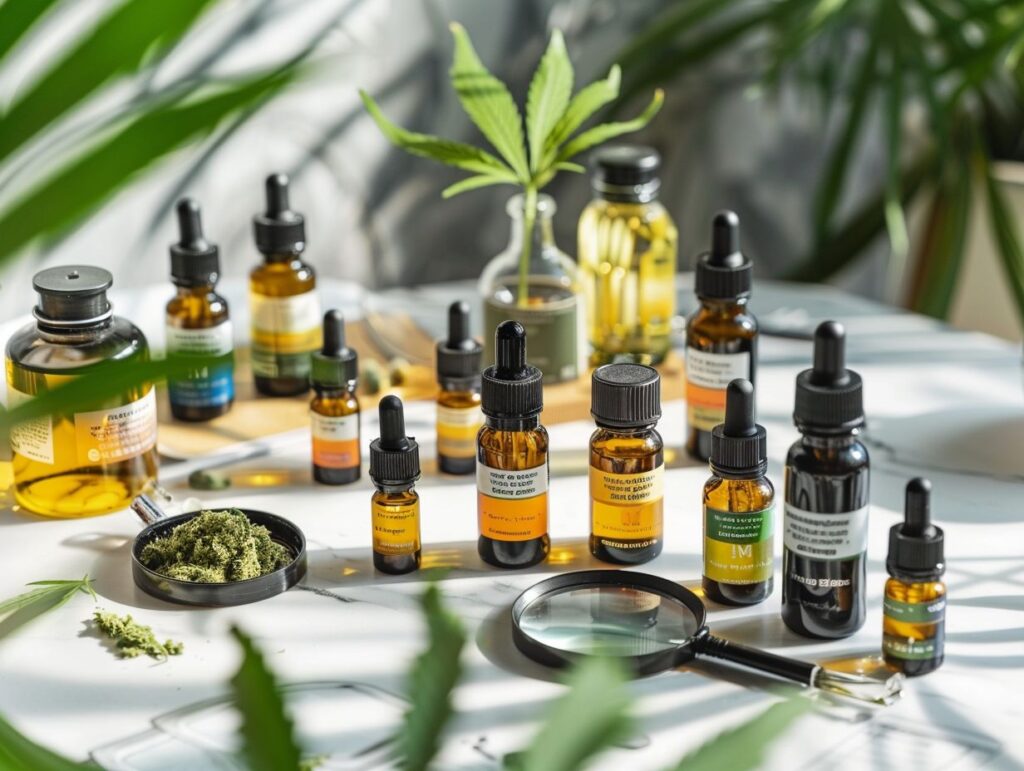
Reading reviews and testimonials about CBD oil products can provide valuable insights into customer experiences and the reputation of brands in the market.
It’s essential to delve into the experiences shared by other users to gauge the effectiveness and quality of different CBD oils. By taking the time to explore these authentic accounts, you can gain a better understanding of how a particular product might work for you.
Customer feedback often highlights aspects like taste, potency, and overall satisfaction, giving you a clearer picture of what to expect. Considering real-world experiences can guide you towards reputable brands that consistently deliver on their promises, ensuring you make an informed decision for your wellness journey.
11. Consult with a Healthcare Professional
Before using CBD oil, it is advisable to consult with a healthcare professional to receive personalized dosage recommendations tailored to individual health conditions.
Healthcare professionals can offer valuable insights into how CBD oil may interact with other medications or existing health conditions. By engaging in a detailed consultation, individuals can gain a better understanding of any potential risks or benefits associated with incorporating CBD into their daily routine. Discussing health considerations such as allergies, pre-existing medical conditions, and overall wellness goals can help healthcare providers provide guidance on the safest and most effective ways to introduce CBD oil. Seeking professional advice ensures a holistic approach to integrating CBD into one’s wellness regimen.
What Are the Common Mistakes to Avoid When Choosing CBD Oil?
Avoiding common mistakes when selecting CBD oil involves conducting thorough research, not basing decisions solely on price, ensuring products undergo third-party testing, considering personal needs, and consulting healthcare professionals.
One of the common errors to avoid is falling for marketing hype without checking the product’s potency and ingredients. Many consumers are swayed by flashy advertising or buzzwords but fail to scrutinize the actual content of the CBD oil.
To correct this mistake, always look for detailed information on the product label or the brand’s website, ensuring that the CBD concentration is clearly stated and matches your requirements. Relying on vague promises or exaggerated claims can lead to purchasing a product that does not meet your desired effects or potential therapeutic benefits.
Not Doing Enough Research
One of the common mistakes when selecting CBD oil is not conducting adequate research on product quality, brand reputation, and the presence of essential lab testing.
This oversight can lead to consumers purchasing subpar products or even unsafe ones, affecting both their health and the effectiveness of the CBD treatment. To avoid these pitfalls, potential buyers should rely on comprehensive buyer’s guides that provide insights into reputable brands, extraction methods, and product types.
Scrutinizing lab reports for details on CBD content, THC levels, and potential contaminants is crucial in ensuring product purity. Prioritizing brands known for their transparency, quality assurance processes, and positive customer feedback can significantly enhance the overall research process for selecting the best CBD oil.
Buying Based on Price Alone
Relying solely on the price of CBD oil can lead to suboptimal choices, as it may not reflect the product’s quality, value proposition, or the reputation of trusted brands.
The price of CBD oil is simply one factor to consider when making a purchase decision. Quality plays a significant role in determining the effectiveness of the product and its potential benefits.
Some lower-priced CBD oils may contain inferior ingredients or have lower concentrations of active compounds, resulting in reduced efficacy. It’s essential to weigh the price against the product’s quality, ensuring that you are investing in a CBD oil that meets your needs and expectations.
Brand credibility is also crucial, as reputable brands often invest in research, testing, and transparency to deliver high-quality products.
Not Checking for Third-Party Testing
Neglecting to verify third-party testing for CBD oil products can pose risks in terms of quality assurance, safety, and the overall efficacy of the purchased products.
It is essential to ensure that the CBD oil you are considering has undergone third-party lab testing to guarantee its quality, safety, and compliance with industry standards. By reviewing lab reports provided by these independent testing facilities, consumers can gain valuable insights into the cannabinoid content, presence of contaminants, and overall composition of the product. Understanding how to interpret these lab reports, such as looking for test results for potency, terpenes, and potential contaminants like pesticides or heavy metals, allows buyers to make informed decisions and select high-quality CBD products for their needs.
Not Considering Personal Needs
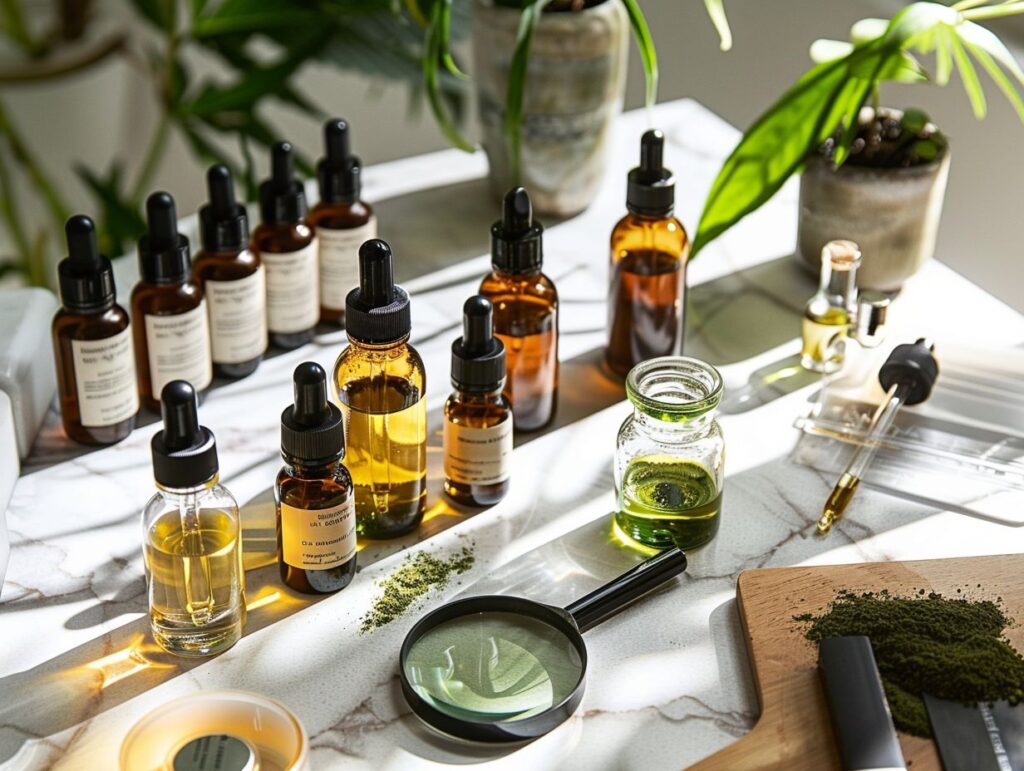
Overlooking personal needs such as specific health conditions, preferred dosage levels, and suitable product types can result in selecting CBD oil that does not address individual requirements effectively.
Considering health considerations, it’s crucial to assess whether full-spectrum, broad-spectrum, or isolate CBD oil suits your needs best.
In terms of dosage preferences, determining if low, medium, or high potency products align with your tolerance level can enhance the efficacy of CBD usage.
Lifestyle requirements play a significant role in selecting the right CBD format, whether it’s edibles, tinctures, topicals, or capsules that fit seamlessly into daily routines.
By tailoring CBD products to individual circumstances through this holistic approach, users can maximize the benefits of CBD in addressing their specific needs.
Not Consulting with a Healthcare Professional
Failing to consult with a healthcare professional before using CBD oil can lead to inadequate dosage management, potential contraindications with existing treatments, and compromised safety measures.
By seeking advice from a healthcare professional, individuals can benefit from personalized guidance on the proper dosage of CBD oil tailored to their specific medical conditions and overall health status. Healthcare consultations offer valuable insights on potential interactions between CBD products and other medications a person may be taking, thereby minimizing the risks of adverse effects or treatment interference. Through these consultations, individuals can ensure that their CBD usage aligns with their treatment plans and optimizes the therapeutic benefits without compromising their health and well-being.
Frequently Asked Questions
What is CBD oil and why is it important to choose the right one?
CBD oil is a liquid extract derived from the cannabis plant. It is gaining popularity for its potential health benefits, including pain relief, reducing anxiety and depression, and improving sleep. Choosing the right CBD oil ensures that you are getting a high-quality product that is safe and effective for your needs.
How do I know which type of CBD oil is right for me?
There are three types of CBD oil: full-spectrum, broad-spectrum, and CBD isolate. Full-spectrum contains all compounds found in the cannabis plant, while broad-spectrum contains all compounds except for THC. CBD isolate is pure CBD. Consider your needs and preferences when choosing between these types.
What should I look for when buying CBD oil?
When purchasing CBD oil, look for products that are made from organically grown hemp, are third-party tested for potency and purity, and have clear labeling stating the amount of CBD per serving. You should also consider the extraction method used, as some methods can affect the quality of the final product.
Are there any potential side effects of using CBD oil?
While CBD is generally considered safe, some individuals may experience side effects such as dry mouth, drowsiness, and changes in appetite. It is important to start with a low dosage and gradually increase as needed, and consult with a healthcare professional if you have any concerns.
Can I use CBD oil if I am taking other medications?
It is always best to consult with your healthcare provider before using CBD oil if you are taking any other medications. CBD may interact with certain medications, so it is important to discuss potential risks and benefits before incorporating it into your routine.
Is it legal to purchase and use CBD oil?
The legality of CBD oil varies by state and country. In the United States, CBD derived from hemp with less than 0.3% THC is legal at the federal level, but some states may have stricter laws. It is important to research the laws in your area before purchasing and using CBD oil.
CBD for Pets: What You Need To Know
Curious about CBD for pets? Wondering about the benefits and potential risks?
Explore how CBD can help your furry friends with issues like anxiety, pain, seizures, and skin conditions. We’ll also discuss the safety of CBD for pets, legal considerations, side effects, and potential risks.
Get tips on choosing the right CBD product for your pet and administering it effectively. Dive in!
What is CBD for Pets?
CBD for pets refers to the use of cannabidiol, a natural compound derived from the hemp plant, for dogs, cats, and other animals to promote their health and wellness. This alternative treatment method has gained popularity among pet owners and veterinarians due to its potential therapeutic benefits.
Originating from the hemp plant, CBD interacts with the endocannabinoid system found in all mammals, including pets, to help regulate various bodily functions. Studies suggest that CBD may offer relief from anxiety, pain, inflammation, and seizures in animals. Its holistic approach focuses on enhancing overall well-being rather than merely masking symptoms. The growing interest in CBD for pets has sparked more research initiatives and veterinary studies to validate its efficacy and safety, driving the need for informed discussions between pet owners and healthcare professionals.
What are the Benefits of CBD for Pets?
CBD offers a multitude of benefits for pets, including relief from anxiety, pain, inflammation, and various health conditions. It has been shown to improve overall wellness and address specific issues such as arthritis, seizures, skin conditions, and even cancer in animals.
By interacting with the endocannabinoid system, CBD can help regulate mood, reduce stress, and improve sleep patterns in pets. In addition to its calming effects, CBD has also demonstrated anti-inflammatory properties, making it a valuable supplement for managing joint pain and mobility issues in aging or injured pets. CBD’s neuroprotective properties show promise in combating neurological disorders and enhancing cognitive function in pets. The holistic nature of CBD makes it a versatile option for pet owners looking to enhance their furry companions’ quality of life.
Reduces Anxiety and Stress
CBD has shown promise in reducing anxiety and stress in pets, offering calming effects that can help improve pet behavior, mood, and overall stress management. It provides a natural way to promote relaxation and well-being in animals.
This natural compound works by interacting with the endocannabinoid system, which plays a crucial role in regulating various physiological processes, including mood and stress response. By targeting these pathways, CBD can help pets feel more at ease and less reactive to triggers that may cause anxiety.
For example, CBD oil has been known to reduce separation anxiety in dogs, allowing them to remain calm and content when their owners are away. Some pet owners have reported that CBD treats have helped their pets relax during thunderstorms or fireworks, events that typically induce stress in animals.
Relieves Pain and Inflammation
CBD is known for its pain-relieving properties, making it an effective solution for pets suffering from inflammation, arthritis, or joint issues. By reducing pain and inflammation, CBD contributes to improved pet wellness and muscle health.
This natural remedy works by interacting with the endocannabinoid system in your furry friend’s body, regulating pain perception and immune response. The anti-inflammatory properties of CBD help soothe discomfort in pets, allowing them to move more freely and comfortably. Pet owners have reported reduced stiffness in their companion animals after incorporating CBD into their wellness routine. In addition to alleviating physical discomfort, CBD can also promote a calmer demeanor in pets, enhancing their overall quality of life.
Helps with Seizures and Epilepsy
CBD has shown promising results in managing seizures and epilepsy in pets, supporting their overall health and cognitive function. It can be a valuable supplement for pets dealing with neurological conditions.
By interacting with the endocannabinoid system in the body, CBD helps regulate neurotransmitter activity, which can reduce the frequency and severity of seizures in pets. In addition to its anticonvulsant properties, CBD also possesses anti-inflammatory and neuroprotective effects, which contribute to improved overall health and cognitive function in animals. Incorporating CBD into a pet’s routine can help boost their immune system, providing a natural and holistic approach to supporting pets with neurological issues.
Improves Skin and Coat Health
CBD has been found to improve skin and coat health in pets by addressing various skin conditions and supporting their immune system. It plays a role in enhancing pet skin health and promoting better digestion.
By incorporating CBD into their daily routine, pets can experience reduced inflammation, itchiness, and allergies, leading to a shinier coat and healthier skin overall. CBD’s ability to regulate the immune system can help pets with conditions such as dermatitis and eczema.
Improved digestive health is also a significant benefit of CBD, as it can aid in nutrient absorption and promote regular bowel movements, ensuring optimal gut function for your furry companion.
Is CBD Safe for Pets?

Ensuring the safety of CBD for pets is paramount, with a focus on understanding potential risks, side effects, dosage guidelines, quality control, and legal regulations. It is crucial to prioritize pet health and research when considering CBD products for animals.
By being vigilant about safety measures, pet owners can mitigate potential adverse effects that may arise from using CBD products. Monitoring your pet’s response to CBD, such as changes in behavior or appetite, is essential. High-quality CBD brands prioritize transparency in their production processes, providing THC-free products to ensure the safety of pets. Adherence to legal regulations not only safeguards your pet but also promotes responsible consumption. Ongoing research in the CBD industry plays a vital role in developing effective and safe products tailored to pets’ unique needs.
Is CBD Legal for Pets?
The legality of CBD for pets varies by region and country, necessitating an understanding of local regulations and laws when purchasing CBD products for pets. As the pet industry grows, so do the legal considerations surrounding CBD use for animals.
With the increasing popularity of CBD products for pets, it is crucial for pet owners to stay informed about the evolving legal landscape. Regulations regarding CBD use in animals are constantly being updated to ensure the safety and effectiveness of these products. Pet owners must be aware of the specific laws in their area to avoid any potential legal issues when using CBD with their furry companions.
The market growth in the pet industry has prompted policymakers to reevaluate and establish clear guidelines to regulate the production, sale, and use of CBD products for pets.
What are the Side Effects of CBD for Pets?
Understanding the potential side effects of CBD for pets is essential in ensuring their well-being. By following appropriate dosage guidelines, conducting proper research, and maintaining quality control, pet owners can minimize the risks associated with CBD use in animals.
Common side effects of CBD for pets may include drowsiness, dry mouth, or gastrointestinal issues. It is crucial for pet owners to closely monitor their furry companions and immediately report any unusual reactions to their veterinarians. Adhering strictly to recommended dosage instructions is imperative to prevent adverse effects.
Ongoing research in the field of pet health remains crucial to understanding the full impact of CBD on animals. Stringent quality control measures ensure that CBD products for pets are safe and effective, further safeguarding them from any potential harm.
What are the Risks of Giving CBD to Pets?
While CBD offers numerous benefits for pets, there are inherent risks that pet owners should be aware of, including potential side effects and the importance of following dosage guidelines. Opting for veterinarian-approved CBD products can mitigate risks and ensure a holistic approach to pet health.
Veterinarians play a crucial role in guiding pet owners on the proper use of CBD products for their animals. They can assess the individual needs of each pet and recommend suitable dosages to prevent any adverse reactions. Understanding the potential side effects such as drowsiness, dry mouth, or digestive issues is vital to monitor the pet’s response to CBD accurately.
Maintaining open communication with the veterinarian can help address any concerns about the pet’s well-being and ensure a safe and effective integration of CBD into their healthcare routine.
How to Choose the Right CBD Product for Your Pet?
Selecting the right CBD product for your pet involves considerations such as quality control, organic ingredients, veterinarian approval, and the effects on animals. With the pet industry trends leaning towards premium products, it is crucial to choose CBD offerings that deliver the benefits essential for your pet’s health and well-being.
High-quality CBD products are crafted with the well-being of pets in mind, ensuring purity and potency. When opting for an organic composition, pet owners can rest assured that their furry companions are not being exposed to harmful chemicals or additives. Veterinarian approval adds an extra layer of credibility, indicating that the product has undergone proper testing and meets the necessary safety standards. Utilizing veterinarian-approved CBD can provide various benefits for animals, such as reduced anxiety, pain relief, and improved overall health.
Look for Third-Party Lab Testing
When selecting a CBD product for your pet, prioritize those that undergo third-party lab testing to ensure quality control, organic ingredients, and premium standards. Vetted and approved products offer peace of mind regarding their effectiveness and safety for your pet.
Third-party lab testing plays a crucial role in the CBD pet product industry by verifying the purity and potency of the ingredients used. By opting for products that have been tested by independent labs, pet owners can have confidence in the reliability and consistency of what they are giving their furry companions.
These tests help to confirm that there are no harmful contaminants present and that the product contains the right concentration of CBD to deliver the desired therapeutic effects. In essence, lab testing provides an extra layer of assurance when it comes to the quality and safety of CBD products for pets.
Consider the Source of CBD
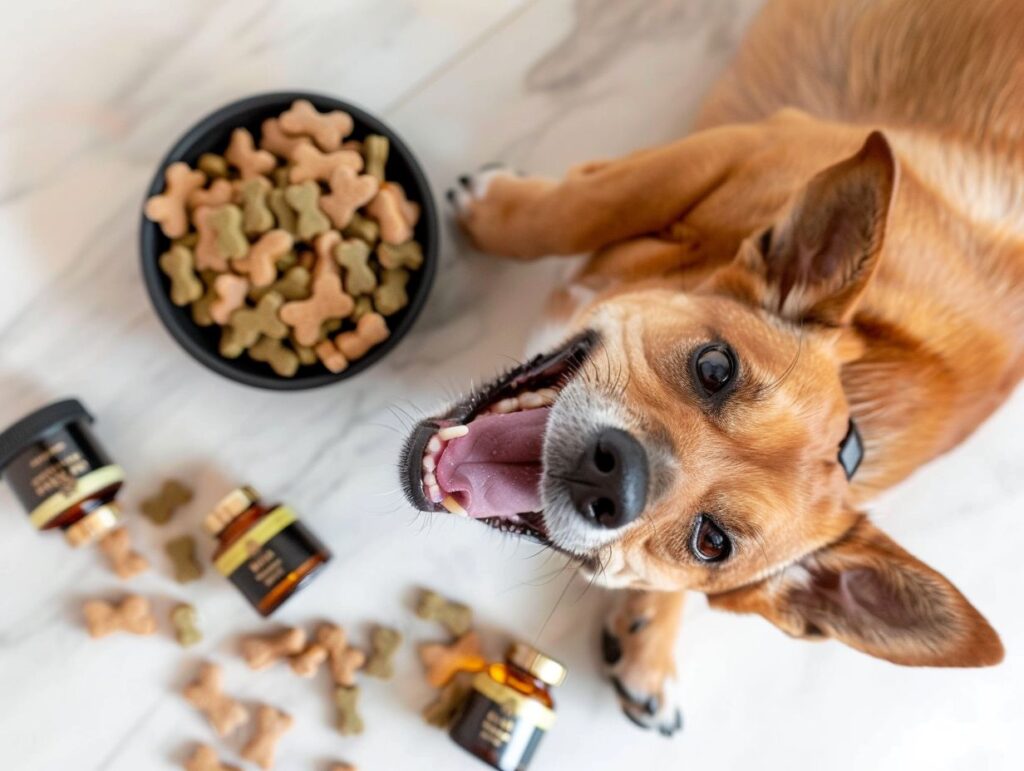
The source of CBD plays a vital role in determining the quality and effectiveness of pet products. Opt for CBD that is sourced from organic and reputable suppliers to ensure the highest standards of pet health and well-being.
Organic CBD sources are cultivated without the use of harmful pesticides or chemicals, making them safer for pets to consume. By choosing products sourced from trusted suppliers, pet owners can provide their furry companions with natural and high-quality supplements that support their overall well-being.
The origin of CBD directly impacts the purity and potency of the products, ensuring that pets receive the full benefits of this therapeutic compound. Prioritizing organic and reliable sources not only enhances the effectiveness of CBD for pets but also contributes to their long-term health and happiness.
Check the THC Content
Ensuring that CBD products for pets are THC-free or contain minimal THC levels is essential for complying with legal regulations and safeguarding pet health and safety. Checking the THC content is crucial in maintaining product safety and aligning with regulatory standards.
By verifying the THC content in CBD pet products, pet owners can make informed decisions about the products they are using for their furry companions. This process helps in ensuring that the products are free from any psychoactive effects of THC, which could be harmful to pets.
Compliance with legal regulations also protects pet owners from potential legal issues and assures them that the products meet industry standards for safety. Prioritizing the safety and well-being of pets by selecting THC-free CBD products is not only responsible but also crucial in promoting the overall health of beloved animal companions.
Read Reviews and Testimonials
Before purchasing CBD products for your pet, it is advisable to read reviews and testimonials from other pet owners to gauge the effectiveness and impact on animals. Understanding the experiences of others can help in making informed decisions about CBD products for pets.
By exploring reviews and feedback on CBD pet products, pet owners can uncover valuable insights into how these items have positively influenced the well-being of various animals. Such testimonials provide real-life accounts of how CBD has helped pets manage anxiety, pain, and other health issues.
This firsthand information can guide pet owners in selecting the most suitable CBD products for their furry companions, ensuring that they are investing in high-quality and beneficial solutions for their pets’ specific needs. With the pet industry continuously evolving, staying informed through reviews is crucial for making educated decisions that prioritize the health and happiness of beloved pets.
How to Administer CBD to Pets?
Administering CBD to pets can be done through various methods, including treats, chews, oils, and topicals, depending on the pet’s preferences and needs. Proper dosing is essential for holistic care and ensuring optimal results for maintaining pet mood and sleep quality.
When selecting the right method of CBD administration for your furry companion, it is crucial to consider their individual tastes and requirements. Treats and chews are often favored by pets for their delicious flavors, making it easy to incorporate CBD into their daily routine. For more targeted relief, oils can be added to their food or administered directly into their mouths. Topicals, on the other hand, are ideal for localized relief and skin conditions. By tailoring the method of CBD delivery to suit your pet’s needs, you can effectively enhance their overall well-being and promote a sense of calm and restful sleep.
CBD Treats and Chews
CBD treats and chews are popular administration methods for pets, offering a convenient and enjoyable way to provide CBD supplements. Proper dosing guidelines for treats and chews are essential for supporting pet digestion and stress management effectively.
CBD treats and chews come in a variety of flavors and sizes, making it easier for pet owners to find options that their furry friends will love. The appeal of these treats to animals can simplify the process of administering CBD, especially in cases where pets may be more resistant to traditional methods. By following dosing guidelines carefully, pet owners can ensure their pets receive the right amount of CBD to promote digestion and manage stress levels without overwhelming their systems.
CBD Oil
CBD oil is a versatile administration method for pets, allowing for precise dosing and absorption. Its high bioavailability ensures effective delivery, supporting the pet immune system, overall health, and supplement needs.
The precise dosing capability of CBD oil allows pet owners to easily control and monitor the amount of CBD their furry friends receive, ensuring accurate and consistent administration. The efficient absorption rates of CBD oil mean that pets can experience quicker relief and results compared to other forms of administration. By enhancing bioavailability, CBD oil maximizes the benefits it offers to pets, potentially boosting their immune system, promoting overall health, and meeting various supplemental requirements for improved well-being.
CBD Topicals

CBD topicals offer targeted relief for pets by directly addressing skin health and muscle conditions. These administration methods are effective in promoting pet skin health and muscle recovery, providing localized benefits for specific areas.
By applying CBD topicals directly onto the skin, pet owners can provide quick relief to areas of discomfort. Whether it’s soothing irritated skin, alleviating muscle soreness, or aiding in the healing process of minor injuries, these topicals offer a non-invasive and convenient way to target specific issues.
The anti-inflammatory properties of CBD can help reduce redness and swelling, contributing to overall improved skin condition and quicker muscle recovery in pets.
Frequently Asked Questions
What is CBD and how does it benefit pets?
CBD, or cannabidiol, is a compound found in the cannabis plant. It has been found to have numerous therapeutic benefits for both humans and animals. In pets, CBD can help with pain, anxiety, seizures, and inflammation, among other conditions.
Is CBD safe for pets to consume?
Yes, CBD is generally safe for pets to consume as long as it is derived from hemp and contains less than 0.3% THC. However, it is important to consult with a veterinarian before giving your pet CBD and to always follow the recommended dosage.
What are the potential side effects of CBD for pets?
Some potential side effects of CBD for pets may include drowsiness, dry mouth, and lowered blood pressure. However, these side effects are rare and usually mild. If you notice any concerning side effects, stop giving your pet CBD and consult with your veterinarian.
Can CBD get my pet high?
No, CBD does not contain the psychoactive compound THC, which is responsible for the “high” feeling. As long as the CBD product is derived from hemp and contains less than 0.3% THC, it will not cause any psychoactive effects in your pet.
How do I give my pet CBD?
CBD for pets can come in various forms such as oils, treats, and capsules. The best way to give your pet CBD will depend on their preference and the condition being treated. Always follow the recommended dosage and consult with your veterinarian for specific instructions.
Is CBD legal for pets?
Yes, CBD derived from hemp and containing less than 0.3% THC is legal at the federal level in the United States. However, it is important to check your state’s laws regarding CBD for pets as some states may have stricter regulations.
History of CBD: From Ancient Medicine to Modern Wellness Tool
CBD may seem like an emerging phenomenon, but this natural plant has actually been used for centuries – from Emperor Sheng Neng sipping a cannabis tea to soothe his symptoms to Queen Victoria using it for menstrual cramp reduction, it has long been part of ancient medical practices.
Origins

Cannabis sativa was first domesticated as early as 12,000 BC for fibre and grain, but soon found its place in traditional medicine as well. Emperor Shen Nung recommended cannabis use to combat malaria, constipation, rheumatic pains and “absentmindedness.”
India traditionally revered Shiva with offerings of bhang (a mixture of cannabis and milk) during religious ceremonies to reduce fever.
Ancient people believed that fever was caused by angry gods’ hot breath; cannabis could appease these gods by appeasing religious rituals thus alleviating fever symptoms. Modern science indicates this may actually be due to THC acting on hypothalamus gland to bring down body temperature.
CBD has quickly become a go-to wellness product. Sold as capsules, skincare products, and drops among other forms, its popularity continues to increase despite not all CBD products meeting government safety standards – some may not even contain all necessary ingredients and amounts that would benefit an individual condition. Without government safety standards in place it can be hard to know whether you’re getting exactly the dose that will have an impactful response for yourself or not.
Recent major scientific breakthroughs have given CBD new support. For instance, in 2018 the FDA granted approval of Epidiolex, a pharmaceutical form of CBD used to treat two rare pediatric seizure disorders (Lennox-Gastaut syndrome and Dravet syndrome), after three well-vetted studies demonstrated its efficacy at significantly reducing frequency compared with placebos.
Modern Use Examples
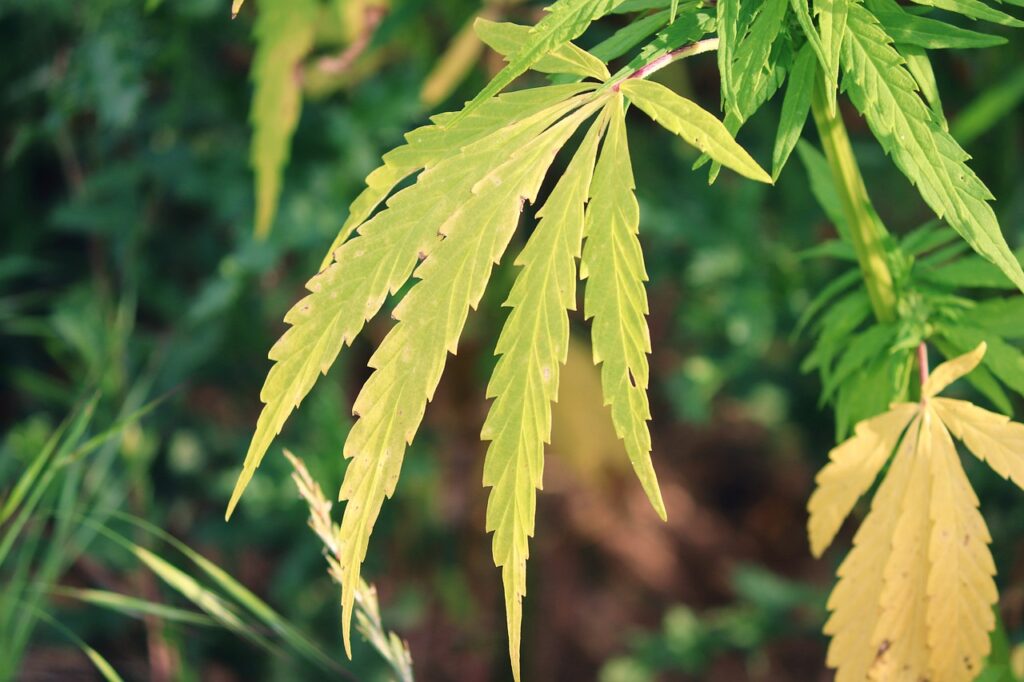
After her son Sam began suffering from severe seizures that necessitated hospitalization multiple times a month, Catherine Jacobson saw an opportunity. She started helping other families deal with their struggles as she realized the drug that saved Sam was helping others as well. It turned out CBD (an extract of cannabis plants) had proven its worth as well.
Her goal was for all children with intractable epilepsy to have access to CBD; but in order to do this, the compound needed to go through FDA trials; that would require finding top epilepsy researchers willing to conduct these trials.
Mechoulam and his team immediately set to work, yet their early attempts proved futile. They couldn’t obtain enough pure plant samples and the assays they employed (dog catalepsy test and Gayer assay) did not yield reliable results.
Other patients were also using CBD as an experimental treatment and conducted their own experiments, documenting them on informal forums.
One woman reported that CBD helped her deal with the extreme neuropathy she experienced from breast cancer chemotherapy treatments, according to Martinez and her colleagues. They are currently testing a pill which contains both THC and CBD to see if combined treatment may provide more pain relief during taxane-based chemotherapies than THC alone.
Medieval Times
Modern scientists have disproved medieval myths by showing how much forward thinking took place during this era, such as invention of the compass, zodiac, and wheel. While famine, plague, warring and religious conflict plagued this period it also gave birth to science and learning – so much that modern scholars consider the Middle Ages to have been more than simply superstitious!
Astronomy and astrology helped people better comprehend the universe around them, such as how planets moved. Medical advances aided this understanding, such as vaccines for diseases like Black Death that killed over 75 million between 1346-1353. With the invention of the Gregorian calendar it became possible to track passage of time, while Greco-Arabic translations (such as Euclid’s Elements, Aristotle Physics and Ptolemy Almagest) fostered interest in natural descriptions of our universe.
Today, CBD is often sold as a wellness product to treat anxiety, insomnia, PTSD and pain. Unfortunately, due to its association with marijuana and Schedule 1 drug status in the US, scientific research into its efficacy remains limited – leaving many wondering whether or not this cannabinoid really works and its possible side effects.
Modern Times
CBD has quickly emerged as a wellness product and helped revolutionize cannabis culture both domestically and abroad. Thanks to the 2018 Farm Bill’s authorization of hemp cultivation’s return in this nation, multibillion-dollar industries such as hemp farming have formed, leading to more research and investigation of CBD’s therapeutic properties.
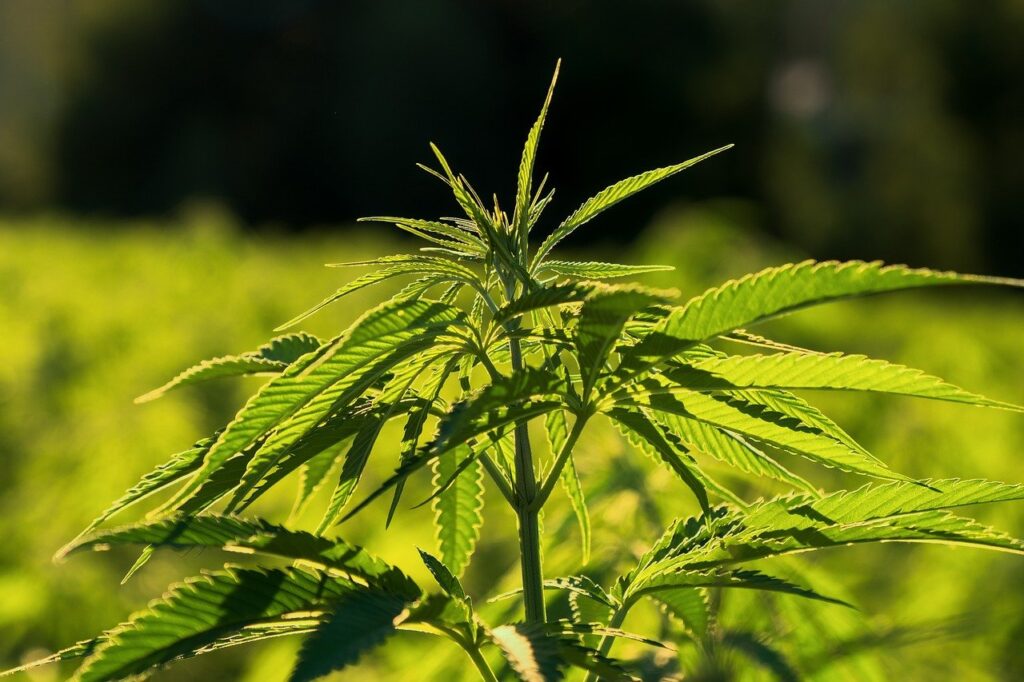
Following World War II, the United States ended its “Hemp for Victory” campaign and cannabis research was put on pause. Thankfully, other countries picked up momentum with research. Israeli scientist Raphael Mechoulam became widely considered the modern godfather of marijuana research by dedicating his career to understanding exactly how cannabis worked and uncovering multiple cannabinoids including CBD and THC chemistry.
Todd used advanced chromatographic and spectroscopic methods not available at that time to detect the intoxicating effects of THC, using methods not previously available to him in 1940. Unfortunately, due to a lack of knowledge surrounding cannabis’ interaction with human bodies at the time, his discoveries did not become mainstream medicine at that point in time.
Charlotte Figi of Colorado was an infant suffering from Dravet Syndrome when she captured America’s attention in 2000, prompting further study on cannabis and CBD. This research eventually yielded Epidiolex – approved by FDA earlier this year to treat two rare and severe forms of epilepsy – using pure CBD crystalline to treat seizures with great promise for those affected.
Full-Spectrum Vs Broad-Spectrum Vs Isolate – Understanding Your CBD Option
Which CBD product works best for you depends on your individual preferences and THC sensitivities. If you don’t mind small traces of THC (up to 0.3% as mandated by Farm Bill), full spectrum products could be suitable.
Full spectrum products contain all of the beneficial terpenes and phytocompounds responsible for creating an entourage effect; however, they may taste slightly “hempy”.
Full-Spectrum

Full-Spectrum CBD products are specifically crafted to deliver the entourage effect, providing users with all of the advantages offered by cannabis plant. This includes cannabinoids like THC which work alongside CBD to increase potential effects; however, Full-Spectrum CBD products adhere to legal limits so as to guarantee users do not experience psychoactive side effects from THC content in them.
Full spectrum CBD products take longer to kick in, with effects dependent on each person’s metabolism and dose taken. While an entourage effect is ideal, some consumers may prefer something more tailored towards their CBD experience; in that instance, an isolate product would be the better choice.
CBD isolate may lack the same cannabinoid concentration as full-spectrum or broad-spectrum CBD products, making it ideal for individuals looking to avoid THC altogether or worry that they might fail a drug test. Furthermore, its unique flavor profiles allow it to create tasty tinctures or products made with CBD isolate. Plus, due to being undiluted by other compounds it allows larger dosages. However if using for extended use it might be wiser to opt for broad-spectrum or full-spectrum products to maximize shelf life and maximize shelf life of products over time.
Broad-Spectrum
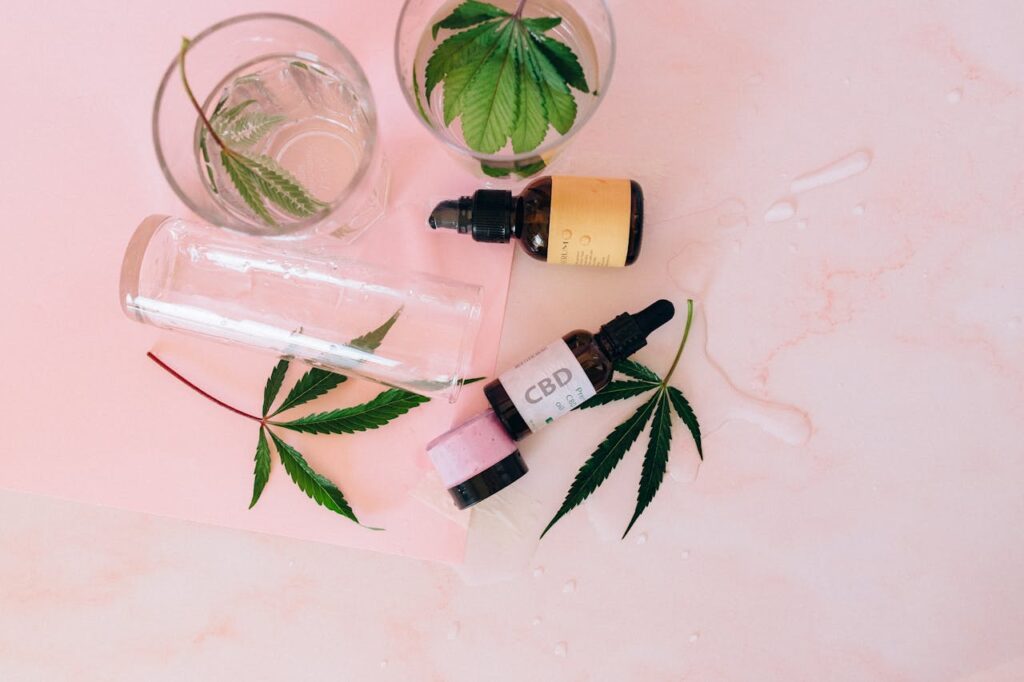
Full spectrum CBD products contain an assortment of cannabinoids and terpenes in addition to CBD. This allows full spectrum products to take advantage of the entourage effect, where several compounds work together synergistically to produce stronger effects than either one alone. Most full spectrum products are derived from hemp which must contain no more than 0.3% THC; however trace amounts could still appear on drug tests, which could pose problems for individuals subject to workplace or legal drug screenings.
Now there is good news: there are now several broad-spectrum CBD products made from industrial hemp which do not detectable THC, making them perfect for those needing to be aware of their THC consumption for legal or professional reasons.
Broad-spectrum CBD can also help people who want to sleep better. Many broad-spectrum products use ingredients like melatonin that aid sleep. It should be noted, however, that not everyone will experience the same calming or sleeping effect from these types of products due to individual differences in how bodies and physiologie respond to cannabinoids; if you need guidance in selecting an ideal product we advise consulting a licensed medical marijuana physician who will guide your search for your perfect product.
Isolate
CBD isolate products offer pure forms of CBD, making them an excellent option for consumers who wish to avoid psychoactive compounds like THC. Isolate products are also tasteless and odorless, making it easy to mix into foods or drinks easily while being more cost-effective overall.
Full spectrum and broad-spectrum CBD products typically include other cannabinoids such as CBG, CBN, terpenes and trace amounts of THC to produce an entourage effect; these additional cannabinoids bind with receptors in your body to produce additional effects beyond just CBD alone.
Isolate CBD products are usually produced through distilling or chromatography, which removes small amounts of other cannabinoids and terpenes derived from cannabis plants, decreasing overall effectiveness because the entourage effect no longer plays its part in stimulating the endocannabinoid system.
Isolate is often less expensive than full-spectrum or broad-spectrum CBD products, making it an appealing option for consumers looking to make their own CBD edibles or tinctures at home. Furthermore, isolate can give users clear visibility into exactly how much of a dosage per serving they’re getting from each dose.
The Science of CBD: How Cannabidiol Works in the Human Body
CBD acts as a pleiotropic drug, producing various effects through multiple molecular pathways. Not only does it increase production of endogenous cannabinoids like anandamide and 2AG, but it can also modulate the ECS by modulating CB1 receptor signaling while amplifying CB2 receptor signaling.
CBD works like an invisible Trojan Horse to enter cells, transporting itself on FABPs – similar to what carry endogenous cannabinoids – before dispersion to PPAR-y receptors.
The Endocannabinoid System
Recently it has been discovered that CBD interacts with your Endocannabinoid System (ECS). This complex network of enzymes, lipids and receptors found in mammals is responsible for creating homeostasis or balance within all body systems – this includes your immune, gastrointestinal, neurotransmitter and hormonal systems as well as memory and learning processes. Some experts attribute specific health conditions to low endocannabinoid levels or ECS dysfunction.
Cannabinoids work to regulate the ECS in several ways. One way is preventing endocannabinoids from breaking down quickly, prolonging their impactful effect. Another approach involves binding to one or more cannabinoid receptors to alter how those endocannabinoids influence your brain and body.
CBD has been shown to modulate several neurotransmitters, including glutamate, GABA and dopamine, providing relief for a range of conditions. One recent fMRI study in healthy participants and people suffering from mental illnesses demonstrated this fact by showing CBD reduced limbic activation associated with anxiety while increasing activity in prefrontal cortex regions involved with emotion processing – leading researchers to hypothesize that CBD may help treat anxiety disorders as it works to restore these imbalanced networks.
CB1 Receptors
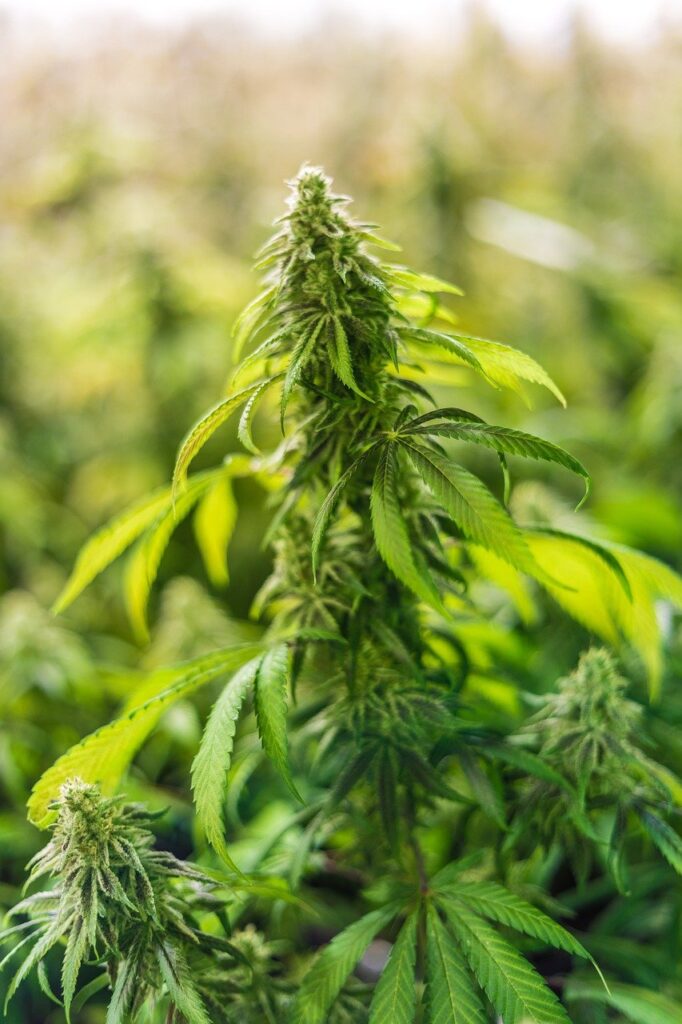
CB1 receptors in our bodies are G protein-coupled and most often found in the central nervous system; however, they can also be found in glands, immune cells, organs, and tissues. The Endocannabinoid System (ECS) is one of the largest systems in our bodies and plays a significant role in our overall health – its ECS can detect areas of concern within the body where secreting endocannabinoids could help address them directly. CBD interacts with this ECS system for various therapeutic benefits including chronic pain management as well as depression, stress relief as nausea relief as seizures prevention.
CBD interacts with these receptors to boost production of anandamide, a neurotransmitter responsible for pleasure, happiness, cognitive, and sensory function. Furthermore, it may increase dopamine levels while suppressing cytokine production thereby helping reduce inflammation.
Studies have also demonstrated the effects of CBD on other neurotransmitters, such as glutamate and -aminobutryic acid (GABA). It should be noted, however, that many studies investigating its impact on brain function used within-subject designs that could be affected by concurrent use of medications or cannabis and thus require further study in this regard.
CB2 Receptors
A remarkable biological system known as the Endocannabinoid System (ECS) ensures your body maintains balance and homeostasis by regulating up to 15 major functions through chemical signals and cell receptors, with CB1 and CB2 receptors playing an essential role in controlling levels and activity of neurotransmitters that regulate hunger to sleep cycles.
CBD is a non-psychoactive phytocannabinoid with strong affinity for both CB1 and CB2 receptors, as well as other receptors including GPR55, transient receptor potential vanilloid (TRPV), and peroxisome proliferator-activated receptor gamma (PPARg). Cellular experiments have revealed that its ability to induce inverse agonism at CB2 may contribute to its anti-inflammatory properties.
The ECS is complex. Different cannabinoids and their respective receptors impact different aspects of your overall health; their interactions often become complex. CBD stands out as an exceptionally versatile cannabinoid that modulates both CB1 and CB2 receptor activity, both simultaneously by tempering them slightly while amplifying them both at once for more subtle yet profound therapeutic results.
Scientists are still learning more about how CBD interacts with the ECS and how its wider impact on human health works, but clinical trials have revealed its ability to provide anxiolytic, pain-relieving effects and promote a restful night’s rest.
Other Receptors

CBD interacts with multiple brain receptors outside the endocannabinoid system. These include serotonergic and vanilloid 5-HT1A/2A/3A receptors, opioid receptors and peroxisome proliferator activated receptors PPAR-g (peroxisome proliferator-activated receptor). Such interactions could provide additional health benefits beyond what can be gained via its effects on endocannabinoids alone.
CBD has been shown to regulate immune cytokine production, thus inhibiting pro-inflammatory cytokines from being released and potentially decreasing inflammation associated with autoimmune conditions such as arthritis, IBD and Crohn’s. Furthermore, CBD has also been demonstrated to decrease neurotransmitter uptake while simultaneously increasing neurotransmitter synthesis resulting in less psychotropic side effects like anxiety and depression.
Neuroimaging studies utilizing MRI, PET and EEG reveal how CBD influences human brain function. Numerous emotional processing studies conducted using CBD have discovered it reduces activity in left medial temporal cortex areas (amygdala and anterior parahippocampal gyrus), posterior lobe of cerebellum and skin conductance response fluctuations – physiological measures of emotional responses.
Another finding suggests that CBD acts as a CB1 antagonist by binding to the orthosteric site of receptor and blocking THC effects (Laprairie et al, 2015). This could prevent down-regulation of endocannabinoid receptors and subsequent psychotic symptoms in some patients.

Why Choose Us?
Discover what sets The CBD Advocate apart and why we’re the top choice for CBD enthusiasts.
